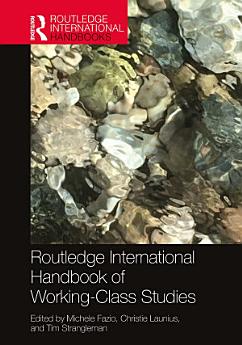Routledge International Handbook of Working-Class Studies
About this ebook
The Handbook maps the current state of the field and presents a visionary agenda for future research by mingling the voices and perspectives of founding and emerging scholars. In addition to a framing Introduction and Conclusion written by the co-editors, the volume is divided into six sections: Methods and principles of research in working-class studies; Class and education; Work and community; Working-class cultures; Representations; and Activism and collective action. Each of the six sections opens with an overview that synthesizes research in the area and briefly summarizes each of the chapters in the section. Throughout the volume, contributors from various disciplines explore the ways in which experiences and understandings of class have shifted rapidly as a result of economic and cultural globalization, social and political changes, and global financial crises of the past two decades.
Written in a clear and accessible style, the Handbook is a comprehensive interdisciplinary anthology for this young but maturing field, foregrounding transnational and intersectional perspectives on working-class people and issues and focusing on teaching and activism in addition to scholarly research. It is a valuable resource for activists, as well as working-class studies researchers and teachers across the social sciences, arts, and humanities, and it can also be used as a textbook for advanced undergraduate or graduate courses.
About the author
Michele Fazio is Professor of English and Coordinator of Gender Studies at the University of North Carolina at Pembroke, US.
Christie Launius is Associate Professor and Head of the Gender, Women, and Sexuality Studies Department at Kansas State University, US.
Tim Strangleman is Professor of Sociology in the School of Social Policy, Sociology and Social Research, SSPSSR, at the University of Kent, Canterbury, UK.




